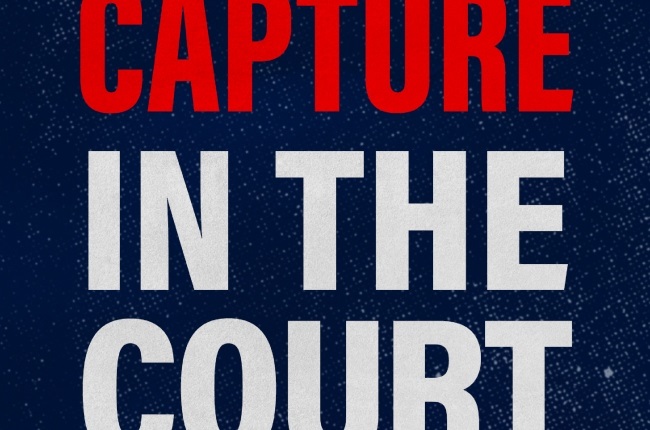
‘Regarding good Negro government’ is the title of Ta-Nehisi Coates’s introduction to his collection of essays, We Were Eight Years In Power.
The title is drawn from WEB Du Bois’s reflections on the constitutional convention of 1895 in South Carolina, which followed an eight-year period in which African Americans were allowed to vote and hold public office in the state of South Carolina, during the Reconstruction era following the abolition of slavery.
Some black members of South Carolina’s legislature had been accused of corruption, and this, according to their white counterparts, necessitated the imposition of more onerous literacy and property requirements as qualifications to the right to vote and the entitlement, once elected, to hold office.
Du Bois saw the 1895 convention as nothing more than an attempt to re-establish the master-slave power relations of yesteryear.
The alleged corruption, Du Bois argued, was the sole creation of white supremacists’ imagination. What South Carolina’s government had done, in fact, was to achieve such great progress as to undermine the staunchly held white supremacist belief that the Negro was inferior and not capable of being in charge of ‘the development of political and legal civilization upon the most important subjects of human life’.
It seemed fairly clear,’ to Du Bois, ‘that what South Carolina wanted was not reform even in its narrower sense.’
What the convention was attacking ‘was not even stealing and corruption. If there was one thing that South Carolina feared more than bad Negro government, it was good Negro government.’
Coates draws heavily on Du Bois’s motifs when assessing the popularity of Donald J Trump and explaining his accession to the presidency of the United States. Barack Obama’s presidency, argues Coates, was a period of ‘good Negro government’. So good was it that it provoked from white American society the near-visceral reaction that Du Bois had seen in the actions of the white legislators in South Carolina.
That was the problem, Coates said. In a society built on the belief of the fundamental difference between the Other and the Self, Obama’s presidency, in its remarkable ordinariness, to paraphrase James Baldwin, shook heaven and earth to their foundations.
Read more |BOOK EXTRACT | How to stay on top of your tax matters as a freelancer
I borrow the title of this introduction from Coates.
But, unlike him, I do not reminisce about a long-gone period of ‘good Bantu government’.
I argue, instead, that whatever foundations were laid by Mandela and his administration in the hopes of ushering in good Bantu government have since been abandoned, much like the many uncompleted infrastructure projects that pepper every corner of this republic.
From its inception, the Constitutional Court has occupied a central place in our democracy.
In one of its very first judgments, the court invalidated proclamations issued by Mandela in terms of the Local Government Transition Act 209 of 1993. Mandela had sought to override the powers of the ‘Administrator’ (now Premier) of the Western Cape to demarcate electoral districts.
The Western Cape was the only non-ANC-governed province and the proclamations would have had the effect of gerrymandering the elections in the ANC’s favour.
‘It is of crucial importance at this early stage of the development of our new constitutional order, to establish respect for the principle that the Constitution is supreme,’ Arthur Chaskalson, the court’s inaugural and only president, wrote.
All of the preparatory steps towards the local government elections had to be undone. Shortly after judgment was handed down, Mandela announced that he accepted the judgment and would comply.
In one of the three infamous South African Rugby Football Union (SARFU)cases, Judge William de Villiers of the Transvaal Division ordered that Mandela appear in person to account for his conduct in appointing a commission of inquiry into the affairs of national rugby union.
De Villiers no doubt sought to humiliate Mandela.
One imagines the flurry of emotions and memories of his earlier experiences in court that his appearance must have evoked.
Nevertheless, he appeared – something no other sitting president would ever do. De Villiers, like the good apartheid judge that he was, found Mandela’s testimony to have been unreliable.
When the matter reached the Constitutional Court, the wisdom of superimposing this body at the apex of the judiciary, which was then still almost entirely white and male, showed itself. The court’s judgment, without once directly addressing De Villiers’s deplorable conduct, dissected his reasoning with such clinical precision that one almost winces when reading it.
Read more | Dr Sindiwe Magona is celebrating her 80th birthday all year round with accolades
The court concluded that there was no basis for any of the findings made and overturned his ruling entirely.
I mention these two cases (although there are others) to illustrate the kind of relationship that both the Constitutional Court and Mandela sought to foster between each other, in the light of their respective constitutional roles. How nasty our fall from such heights has been!
This book explores the causes of the less-than-happy relations between the courts and politicians.
This is edited extract from Capture in the Court: In Defence of Judges and the Constitution. Written by Dan Mafora (published by Tafelberg, an imprint of NB Publishers), it is available on takealot.com and any good bookstores.



















